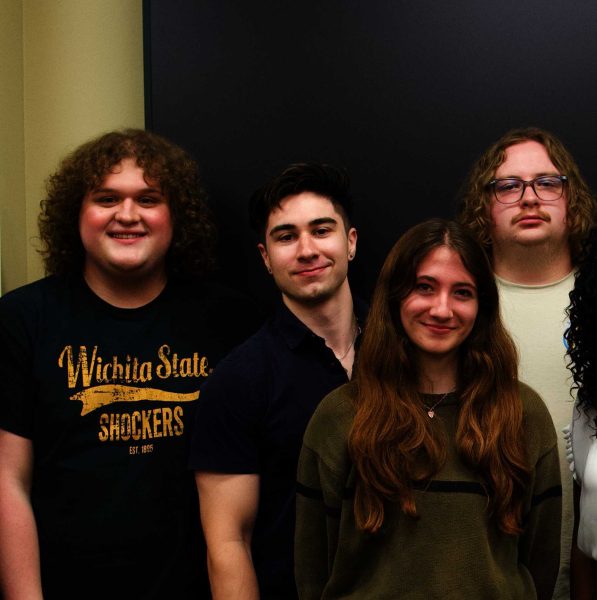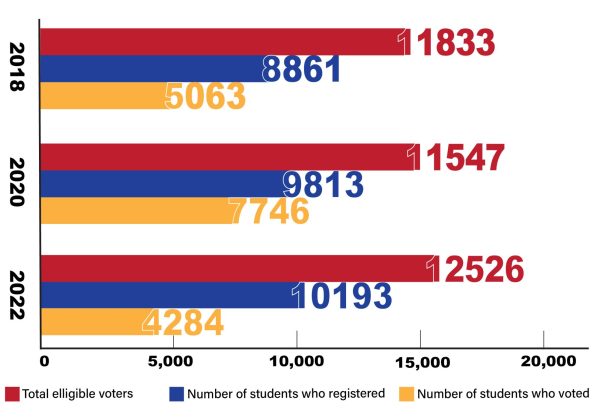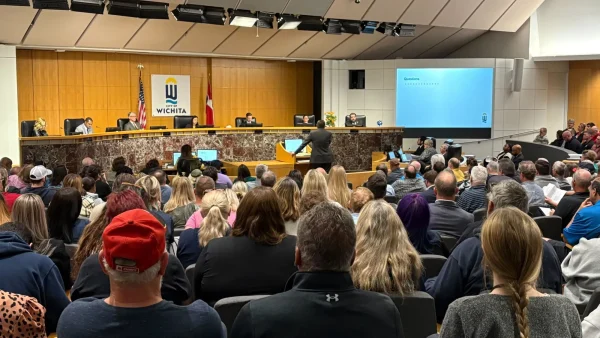Student fees could increase by 1.5% next year; no big cuts proposed to student groups — except Model UN
It took 14 hours of debate over the course of two days, including an 11-and-a-half hour marathon session, but the Wichita State Student Fees Committee finally passed its FY2021 budget in the early morning hours of Saturday.
Most student organizations received all or most of the funds they requested.
In order to do so, the committee passed a 1.5% increase in student fees for next year, bringing in $10,074,752 of projected revenue for the committee to work with.
The committee also swept some reserves from the Office of Diversity and Inclusion, Formula Racing, and the international student scholarship to amass a $27,945 contingency fund.
This fund will sit in the student fee account unless the senate president makes a recommendation on how to spend it. Historically, however, it has been used as a rainy day fund for years when enrollment drops below projections.
Here’s a breakdown of how much each line item received:
Equal Opportunity Fund:
Scholarships, grants and funds under the Equal Opportunity Fund (EOF) remained largely untouched.
The Historically Underrepresented Grants Fund asked for an increase of $5,000 from their $50,000 allocations last year, but representatives ultimately voted to keep the fund at its current allocation.
The Student Supports Services Program, or TRIO, asked for an increase of $6,000 from their previous allocations of $14,000, but the committee voted to only give them half of their proposed increase. This puts them at $17,000 for FY21.
Student Services:

While some line items didn’t receive their full requests, only three line items had their funding decreased from FY20 — Student Affairs Initiatives, the Cadman Student Gallery Visiting Artists Lecture Series, and Model United Nations.
The committee allocated $92,000 for Student Affair Initiatives — down $8,000 from what they received this year and requested for FY21.
The Cadman Student Gallery Visiting Artists Lecture Series received only $345 less than last year’s allocation, putting them at $3,000 even.
The group that took the largest cut percentage-wise at 10% was Model United Nations. The group, which has received $20,000 since FY18, was cut to $18,000. Vice President Michael Bearth said that from what he has seen from their finances, the program should be able to make do with the cut. He also claimed that the group has been actively looking at other avenues of funding.
New items:
The hardest hit, fee-wise, were new items introduced this year.
The Ulrich Museum of Art requested $100,000 for construction of a Collection Study Center and student lounge. This request would have gone to buying furniture for the lounge. However, after it was brought to the representatives attention that the groundbreaking for this center wouldn’t be until the summer of 2021, they decided not allocate any funds for the project, saying they should revisit next year.
Shocker Career Accelerator requested $53,995 to create a LinkedIn Learning Suite for students. It was billed as a “comprehensive learning tool” for developing professional skills that would be incorporated into professional development plans for every WSU student participating in an applied learning or internship experience. The committee deemed the intentions of the program to be a duplication of services already offered and elected not to fund the initiative.
The Graduate Student Council was the only new initiative to receive funding. The council requested $47,000 to fund events, conduct elections, provide stipends and bi-annual retreats for executive board members, conduct daily operations, and purchase supplies. The committee decided to give the group just $15,000 because, as a new organization, they had yet to come up with a process of allocating certain funds. The council was encouraged to come back seeking additional funding after they are more established.
These fee committee’s decisions are not yet final. The budget will be sent to the Student Government Association’s Budget and Finance Committee this week and will have its first read before the Student Senate the following week. The senate is expected to give the budget an up or down vote before spring break at the end of March.
After that vote, the budget will be sent to University President Jay Golden for his signature and then forwarded to the Kansas Board of Regents. Golden has expressed to Student Body President Kitrina Miller that he is unwilling to sign a budget that increases student fees by more than 2%.

Kylie Cameron was the Editor in Chief of The Sunflower for the 2019-2020 school year.
She is a senior studying political science and journalism and...









